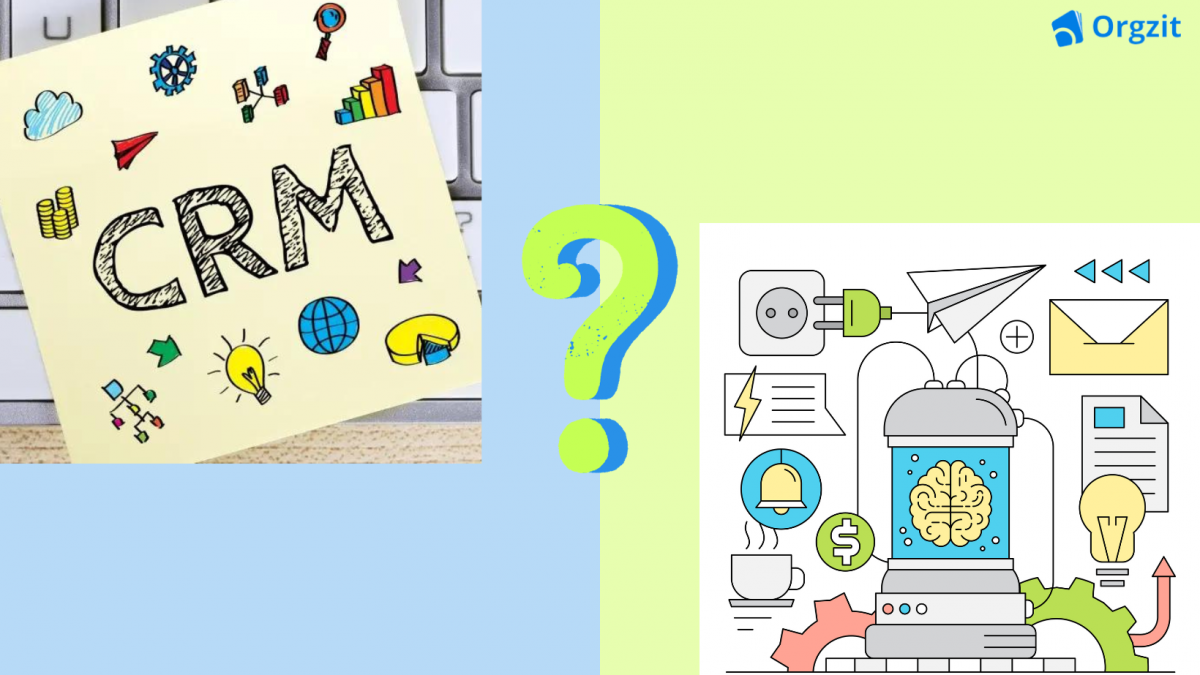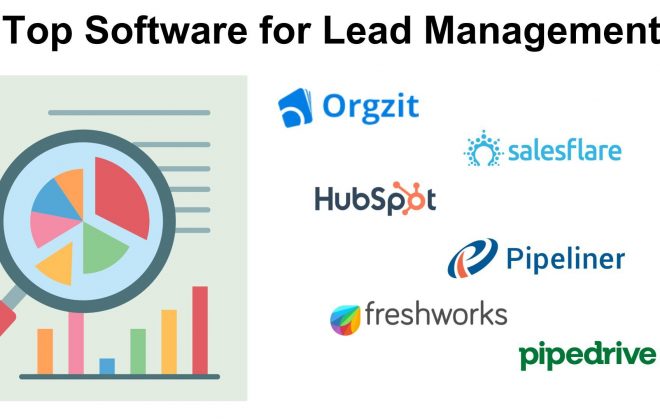Key Values and Guide to CRM vs Marketing Automation
The most important factor of any business is the customer. Without customers, there is no business. If you are running a business and lose your customers, it can be frustrating and demotivating. You may feel like you are constantly spinning your wheels to make things work, but nothing works for you anymore.
In this situation, you need some guidance about tools and techniques that help you. This blog will walk you through the two main techniques, CRM vs marketing automation, and provide knowledge about how these techniques can make things easier for your business and help you achieve your sales and marketing goals to attract and satisfy your customers.
TL;DR
| Tool | CRM | Marketing Automation |
| Purpose | Manage customer interactions and relationships | Automate marketing tasks |
| Key features | Lead tracking, relationship management, contact management, opportunity management, automation of repetitive tasks, sales management, marketing, customer service | Email marketing, lead nurturing, social media marketing, campaign management, advertising, sales |
| Benefits | Collects, organizes, and analyzes customer data, save your time and money, Increase efficiency, Generate more leads and sales, Nurture leads and convert them into customers, Improve customer retention | IImprove customer engagement, Generate more leads and sales, Nurture leads, and convert them into customers |
| Tools | Orgzit, HubSpot, Zoho etc. | Mailchimp, Marketo, Pardot etc. |


What is a CRM?
CRM (Customer Relationship Management) software helps businesses to manage customer interactions and relationships. CRM software can track customer data, such as contact information, purchase history, and support tickets. It can also automate businesses’ day-to-day tasks, such as sending marketing emails and scheduling follow-up calls.
What is the CRM Process?
A CRM process is a strategy to maintain personalized customer interaction through various stages that involve managing customer data, analyzing information, and generating meaningful reports. The CRM Process aims to increase brand awareness and enhance business loyalty, strengthen customer service relationships, increase customer retention, and promote sales growth.
The CRM process consists of five stages- reach, lead acquisition, lead conversion, customer retention, and customer loyalty – which require the joint effort of a business’s marketing, sales, and customer support teams. The advantage includes access to a complete overview of the customer’s journey.
Key features of CRM
- Lead Tracking – CRM software tracks leads from the moment they first interact with your business to the moment they become customers.
- Relationship Management – CRM software can help you to build relationships with customers by tracking their preferences and interactions with your business.
- Contact Management – CRM is Ideal for maintaining a well-organized database of your customers and prospects, storing contact details, communication history, and preferences.
- Opportunity Management – If your business operations involve a complex sales cycle, CRM automation helps track potential deals and assess their likelihood of conversion into sales.
- Automation of Repetitive Tasks – Using CRM for some repetitive tasks like sending emails, reminders, or follow-ups and freeing up your team for more strategic work makes your business and customer relationships accessible.
- Sales Management – CRM automation platforms can help you manage your sales pipeline to close deals. You can also calculate tasks such as sending proposals, reminders, and follow-ups.
- Marketing – CRM software can help you to customize your customers based on their characteristics and behavior and create personalized marketing campaigns. You can also track the behavior of your campaigns, measure the return on investment (ROI), and evaluate your marketing strategy.
- Customer Service – CRM software can help you provide fast and efficient customer service. You can automate tasks such as creating tickets, assigning agents, and sending notifications. You can also track the resolution time, customer satisfaction, and feedback.
How does CRM apply to your business?
- CRM software collects, organizes, and analyzes customer data from various streams of information and sources. These sources are most often email, social media, websites, etc.
- You can deliver individualized and prompt services by using CRM software. CRM can give you information on the requirements, preferences, and habits of your customer’s needs. You can record and store this data in your CRM app and use it whenever you want.
- A CRM can help you see trends like the most significant customer, deals closed in a week, sale cycle progress, individual team members progress, and much more.
- CRM can help you track your crucial deals and manage or assign tasks for each team member.
- CRM technology enables businesses to control how they connect with both present and future customers for growth and make them feel connected.
- CRM plays a big role in boosting revenue with transparent sales cycles, relevant insights on leads, quotes, and customer preferences. Not only this, but it also enhances consumer satisfaction with timely problem-solving and streamlining numerous business procedures.
Tools for CRM
| Tools | Orgzit is the best CRM for small and medium businesses with complex sales processes. It is easy to use, has excellent customer support, and is affordable. | HubSpot is a good CRM for businesses of all sizes, but it is more expensive than Orgzit and has a more complex learning curve. | Zoho is a good CRM for businesses of all sizes, but it is not as easy to use as Orgzit and HubSpot. |
| Ease of use | Easy | Complex | Moderately difficult |
| G2 rating | 4.8 out of 5 stars | 4.4 out of 5 stars | 4.0 out of 5 stars |
| Customer support | Excellent | Good | Good |


What is Marketing Automation?
Marketing automation is software that helps businesses automate marketing tasks, including sending emails, scheduling social media posts, and managing ad campaigns. Marketing automation software can also track the results of businesses’ marketing campaigns and identify the most effective campaigns.
What is the Marketing Automation process?
The marketing automation process is used to automate marketing tasks and workflows. This can include email marketing, social media marketing, advertising, CRM automation, and analytics automation. The marketing automation process saves time and money, increases efficiency, improves customer engagement, generates more leads and sales, nurtures leads and converts them into customers, and improves customer retention.
Key features of Marketing Automation
- Email Marketing – Marketing automation software allows you to create and send email marketing campaigns to your leads and customers.
- Lead Nurturing – Marketing automation software helps you to nurture leads by providing them with relevant content and offers over time.
- Social Media Marketing – Marketing automation software can help you to manage your social media marketing campaigns by scheduling and publishing posts, tracking engagement, and analyzing results.
- Campaign Management – Marketing automation software allows you to create and manage marketing campaigns across multiple channels, such as email, social media, and paid advertising.
- Advertising – Marketing automation can automate your advertising campaigns, such as creating and managing Google AdWords campaigns. This can save you time and help you to be more efficient with your advertising budget.
- Sales – Marketing automation can automate sales tasks, such as sending follow-up emails to leads and scheduling appointments. This can free up your sales team to focus on more important tasks.
How does Marketing Automation apply to your business?
The marketing automation process can impact your business both positively and negatively.
On the positive side, marketing automation can help you to:
- Save your time and money by automating repetitive tasks.
- Increase efficiency by streamlining your marketing workflows.
- Improve customer engagement by delivering personalized content and offers at the right time.
- Generate more leads and sales by targeting the right people with the right message.
- Nurture leads and convert them into customers by providing them with the information and support they need throughout the buying process.
- Improve customer retention by staying in touch with your customers and providing them with valuable content and offers.
On the negative side, marketing automation can also lead to the following problems if not implemented correctly:
- Spam: If you send too many emails or irrelevant content to your leads and customers, you may end up being marked as spam.
- Impersonalization: If you don’t personalize your marketing messages, your leads and customers may feel like they’re just being bombarded with generic sales pitches.
- Loss of control: If you automate too much of your marketing, you may lose control over your messaging and branding.
Tools for Marketing Automation
| Tools | Mailchimp | Marketo | Pardot |
| Primary focus | Email marketing | Marketing automation | Marketing automation |
| Target audience | Small businesses and startups | Medium to large businesses | Medium to large businesses |
| Key features | Email marketing, landing pages, social media marketing | Marketing automation, email marketing, landing pages, social media marketing, CRM integration | Marketing automation, email marketing, landing pages, social media marketing, CRM integration |
| Pros | Easy to use, affordable, free plan available | The comprehensive set of features, strong marketing automation capabilities | Robust marketing automation features, deep Salesforce integration |
| Cons | Limited marketing automation features, not as scalable as other platforms | Expensive and can be complex for users without prior marketing automation experience | Expensive, can be complex for users without prior marketing automation experience |
Add value to business (CRM vs Marketing Automation)
CRM and marketing automation are different tools, but sometimes, they can be used together to improve a business’s marketing and sales efforts. CRM helps businesses identify and nurture leads, while marketing automation automates campaigns and provides live results.
Let’s take a quick analogy to understand the main difference between CRM and marketing automation – Imagine yourself as a restaurant owner. CRM is like your customer list. It contains information about your customers, such as their names, contact information, and what they have ordered. Marketing automation is like your kitchen staff. It helps you prepare and serve food to your customers.
CRM can help you identify which customers are most likely to return to your restaurant in the future. This can help to grow your business. You can use this information to send them targeted marketing messages, such as a coupon for their birthday. Marketing automation can help you automate these tasks so you don’t have to send each message manually.


Conclusion: Choose whatever suits your business well!
CRM and marketing automation are both important tools for businesses of all sizes. However, they serve different purposes and can be used together to achieve the best results.
Which tool is more useful for your business will depend on your specific needs and goals. If you are looking for a tool to help you manage your customer relationships, then CRM is a good option and if you are looking for a tool to help you automate your marketing tasks, then marketing automation is a good option.
If you are not sure which tool is right for you, then it is good to go with more exploration about CRM vs marketing automation. They can help you to assess your needs and choose the right tool for your business.
What is CRM?
CRM software helps businesses manage their customer interactions and relationships. CRM software can track customer data, such as contact information, purchase history, and support tickets. It can also help businesses solve tasks like sending marketing emails and scheduling follow-up calls daily.
What is Marketing Automation?
Marketing automation is software that helps businesses automate marketing tasks, such as sending emails, scheduling social media posts, and managing ad campaigns. Marketing automation software can also track the results of businesses’ marketing campaigns and identify the most effective campaigns.
Which one should I choose: CRM vs marketing automation software?
Whether you should choose CRM or marketing automation software depends on your specific business needs. If you are primarily focused on sales, then CRM software is a good choice. If you are primarily focused on marketing, then marketing automation software is a good choice. However, most businesses can benefit from using both CRM and marketing automation software together.
How can I integrate CRM and marketing automation software?
There are many ways to integrate CRM and marketing automation software. One option is to choose a software suite that includes both CRM and marketing automation features. Another option is to use third-party integration tools to connect your CRM and marketing automation software.
How much does CRM and marketing automation software cost?
The cost of CRM and marketing automation software varies depending on the features and functionality that you need to implement for your business.
What are the benefits of using CRM and marketing automation software?
There are a number of benefits to using CRM and marketing automation software, including:
– Increased sales and marketing efficiency
– Improved customer relationships
– Better lead generation and nurturing
– More personalized customer interactions
– Increased customer satisfaction







